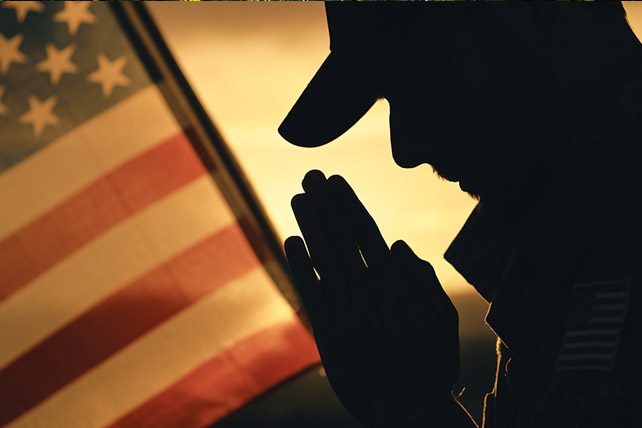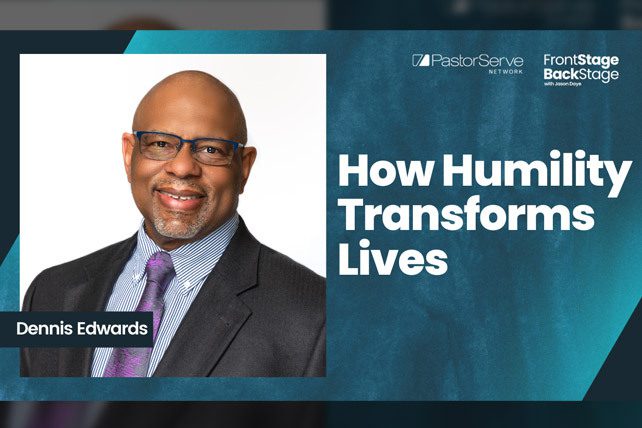From as early as I can remember, I was raised “in the faith.” For all my years growing up, Dad was a pastor, and so talking about and learning of spiritual things was a regular part of our family life. Even though I didn’t make the faith personally my own until the age of 12 when I accepted Christ as my Savior, there were principles and doctrines that were drilled into me (in a good way) from before the time I was even able to understand them.
Things like the following:
- God created the world
- Jesus is the Son of God
- Jesus is God
- God is a Trinity – three persons, yet one God
- Jesus was born of a virgin
- Jesus never sinned
- The Bible is pure and perfect
- God’s Word is to be the foundation for our lives
- Every person will spend eternity in Heaven or in Hell
- It is our responsibility as Christians to bring others to Christ.
For many of you, like me, all of these truths and more were learned and maybe even memorized from an early age. We were taught to believe these things because they were true and because they were based upon the authority of Scripture.
ONE THING WE WERE NEVER ALLOWED TO DO…
However, one thing many of us were never to do was question these things about our faith. They were to be taken as truth. Period.
And while we were allowed to ask questions in order to learn and understand these principles better, it was frowned upon (whether intentionally or implied) when we asked questions that actually brought into question the validity of these things.
Recently, my 8 year-old and I were watching a show together on PBS. They mentioned the common phrase “millions of years ago”… And so I simply interjected and said to my son, “We know that the earth is not actually millions and millions of years old. According to the Bible, the earth is only about 6,000 years old.” And in the back of my mind, I was proud of myself for setting the record straight for my son so that he wouldn’t be hood-winked by “science”.
But to my surprise, my simple two-sentence explanation wasn’t sufficient to convince an 8-year old. So he began questioning my statements with some very valid questions:
- “Dad, how do we know that the earth is only that old?”…
- “But none of us were around back then to know.”…
- “But what if the earth is older than we think it is?”…
And while my son was drilling me with 20 questions, I had an internal and intentional choice to make as to how I respond. In my flesh, I just wanted to be firm and say, “Now son, I’m the dad, you’re the puny little 8-year-old. Don’t ask questions, just believe what I say!” But how much help would that have been to my son at a time when he was seeking honest answers by asking honest questions from a sincere heart of wanting to know? The simple answer is that it wouldn’t have been helpful at all.
In that moment, I chose to listen, and gracefully respond to each of his questions, answering them as best I could until his curiosity was satisfied. Why? Because I don’t want him to believe in my faith. I want my faith to become his faith. And the only way that will happen is when he is convinced that what the Bible says is actually true, not just because “Dad (or the Bible) says so, and that’s final.”
But guess what, we’re raising teenagers in our house, and they have questions too! In our home, we have a “no question is off limits” policy that has allowed for our kids to question things we do or things we believe when they don’t fully understand or know the reasons behind them.
This open-door policy to our beliefs has allowed us to have multiple conversations as a family about why we believe what we believe, and has ultimately strengthened our children’s faith, not weakened it, as some parents fear.
WHERE THE RUBBER MEETS THE ROAD…
We say that we want our children to own their own faith, but if that’s true, then we have got to give them some opportunities to make it their own.
How many times as parents are we quick to pounce on our kids when they question our beliefs or faith, making them feel guilty, rather than welcoming such questioning, knowing that it allows them to deepen their understanding of those things and actually make them their own?
As our children grow, they’re naturally going to begin to evaluate and analyze things on their own rather than just taking our word for it, and that’s okay. But our natural tendency when they begin to question our beliefs is either frustration or “freak-out” mode, neither of which are healthy.
Do you have an open-door policy to the beliefs in your home?
Because if your kids don’t ever have any questions about their faith, it’s quite possible they won’t have any depth about it either. Such depth requires that they be allowed and encouraged to ask the tough questions.
I heard this concept recently, and loved it… As parents and leaders, we’ve got to get comfortable in the belief that our faith is stronger than any questions our kids might ask about it. By allowing them to test it, we actually encourage them to trust it.
Allowing our children permission to question their faith (and ours) is one of the keys to helping it become THEIR faith. (This is equally important if you teach children in a church or other setting).
Our children hear a lot of different and competing things from a lot of different directions (friends, culture, media, games, books, etc.), and if we are unwilling to explain and defend our biblical philosophies and beliefs to our kids, someone else will gladly convince them of theirs.
All throughout the Scriptures, some of the great men of faith questioned everything they believed in… (Elijah, John the Baptist, Peter, etc.), and as a result, they came back even stronger and more convinced of the truths they held dear.
ARE YOUR KIDS ALLOWED TO ASK THE TOUGH QUESTIONS?…
Mom and Dad, don’t fret or fear when your children at any age begin to question the Biblical truths and principles that have personally become near and dear to your heart. Be thankful for it, and even encourage it. Why? Because it means that they are personally thinking about and processing these things for themselves. They are evaluating these things. And they are desiring to know the truth, rather than just taking others’ words for granted.
It can be a very dangerous thing to raise a generation on spoon-fed Christianity.
While the previous generation may have been able to get by with it, that doesn’t mean that we can today. This generation of young people strongly desire authenticity and transparency. And we shouldn’t expect them to simply take everything they are told at face value, when they want to personally possess those things and be convinced that they are real. This requires allowing them to ask those tough questions.
And if they question you, and you don’t have legitimate answers for why you believe what you believe, it may stretch you as a parent to do some evaluation yourself, to make sure that what you believe is not simply rooted in what you have always heard, but is rooted firmly in the Scriptures.
What could a parent want more than a child who desires to know the truth, and an open opportunity to explain and defend that truth, so that in turn, they will be able to one day do the same. The last thing you want as a parent is a child who simply mirrors your beliefs until they leave home, but never personally makes them their own.
While this idea may go against the grain of everything we’ve been taught, This is why I believe that every child should be allowed to question their faith. Do you agree? Disagree? I’d love to hear your thoughts.
This article about kids’ questions about faith originally appeared here.
















 How can humility help our local churches nurture healing in our divided world? In this week’s conversation on FrontStage BackStage, host Jason Daye is joined by Dr. Dennis Edwards, New Testament scholar and dean of North Park Theological Seminary in Chicago. Dennis has served for over three decades in urban ministry, including as a church planter and pastor. He’s written a number of books, including his latest, “Humility Illuminated.” Together, Dennis and Jason explore how rediscovering biblical humility can literally help transform our communities. Dennis also shares how embracing humility helps us negotiate conflict, endure suffering, and shepherd our people.
How can humility help our local churches nurture healing in our divided world? In this week’s conversation on FrontStage BackStage, host Jason Daye is joined by Dr. Dennis Edwards, New Testament scholar and dean of North Park Theological Seminary in Chicago. Dennis has served for over three decades in urban ministry, including as a church planter and pastor. He’s written a number of books, including his latest, “Humility Illuminated.” Together, Dennis and Jason explore how rediscovering biblical humility can literally help transform our communities. Dennis also shares how embracing humility helps us negotiate conflict, endure suffering, and shepherd our people.






